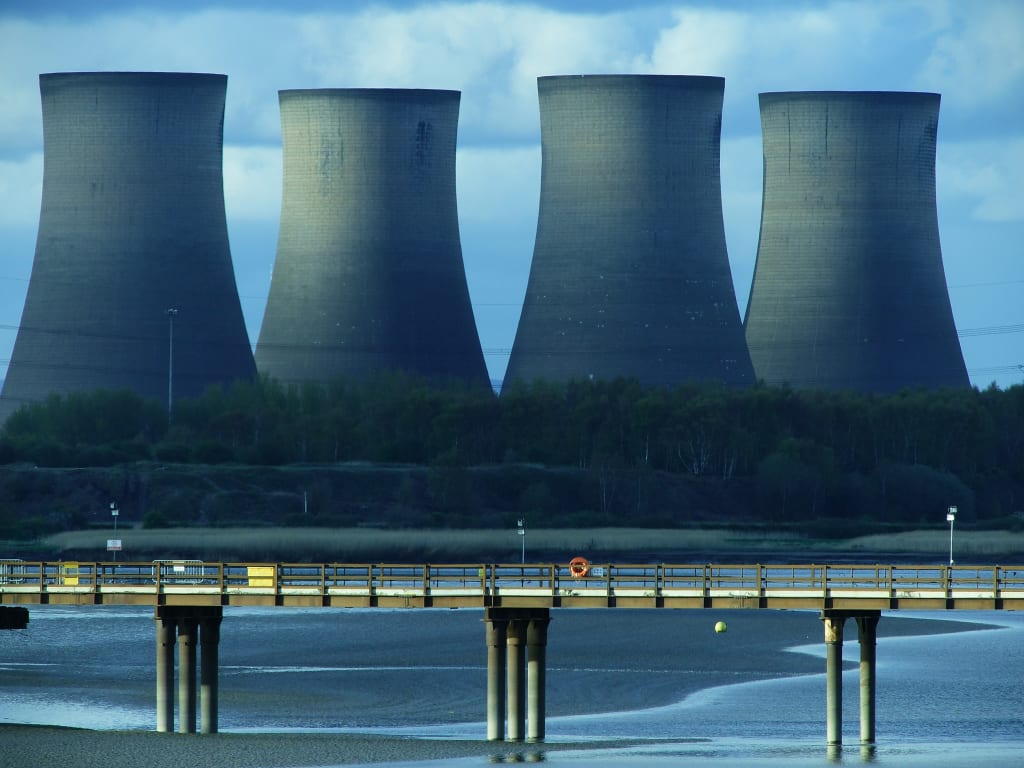'Don't Look Up' and the terrifying reality of corruption
Warning: extreme pessimism and spoilers ahead

Powerlessness is the overwhelming emotion I feel when I think about climate change. Fighting against a corrupt government, lobbying corporations, and misinformation will always be an uphill battle- as shown by the new film 'Don't Look Up'
Detailing six exasperating months of scientists being ignored, it clearly parallels the years of climate reports being shoved under the mattress to allow corporations to continue on their merry way, and the whole basis of the movie forms a metaphor for the impending climate catastrophe. It serves as a direct and blindingly obvious critique of the government, politicians, business owners and the general public. And it is becoming increasingly common to see mainstream movies delivering increasingly damning criticisms of governments. Governments- and in particular I am talking about in Britain and the United States- are only becoming increasingly corrupt.
Undoubtedly, this is terrifying.
It is terrifying that such a thorough criticism can be delivered in movies like this one with little tangible change actually seen. This happens for a number of reasons:
Firstly, a more corrupt government is harder to change. Boris Johnson's government, and the Tory party as a whole, have proven daily that they are there to serve the super rich and the super rich only, through lobbying companies making infinitely more difference than public interest ever will. When large corporations make most of the decisions, what can a few thousand riled up by a Netflix original really do?
Secondly, the apathy shown by the general public in the film is intended to fuel self reflection in the watcher. I would argue that the apathy is not completely accurate, with one study finding that 84% of people aged 16-25 are at least moderately worried about climate change. The issue lies when inaction is mistaken for apathy. Due to a plethora of reasons- distractions, laziness, uncertainty of how to help, inability to help (due to the government corruption mentioned above)- the fraction of worried people who actually take action is miniscule. We flirt with change, but commitment is rare. The title itself, 'Don't Look Up' is tempting fate, daring the watcher not to self analyse. It teases you about how you are acting right now- are you not looking up? Are you ignoring our own metaphorical comet? Apathy and inaction could be what squashes our capacity for change.
Thirdly, the medium of the message has it's benefits, but also it's downsides. The comedic genre, and fiction overall, has always been used as a vessel for political and social commentary. On the upside, it is engaging and encourages a wider audience to watch. On the downside, it acts as a buffer for the message, distracting the watcher from the undercurrent message. With this film in particular, I don't think this buffer effect is too much of an issue as the ending is so bleak that the message shines through. Mass consumption, however, could prove problematic. With a platform like Netflix, which encourages binge-watching and quick flicking between different shows and movies, reflection on what you just consumed is discouraged. The main message will likely be taken in, but little else, and very little self reflection is likely to occur.
I don't want to seem like I am blaming the consumer and the general public, however. As I mentioned before, myself and many others feel powerless- because largely we are. The film shows the unstoppable nature of government corruption, and the powerlessness of the individual. It's bleak, it's pessimistic, and it is the furthest you can get from inspiring. But worst of all, it's realistic. Science fiction is not often hailed for it's realism in the plot, but it's messages on humanity and society ring true.
Now we are fully submerged in the pessimism, lets talk about the ending. Possibly the most horribly depressing part. Humanity being wiped out and all of the scientists efforts meaning nothing is clearly upsetting, but I would argue the survival of the few is worse. Despite being the most tangled in a web of corruption and immorality, it was the politicians, bank owners and oil tycoons who got their second chance. Hardly the best people to start fresh on a new planet. The film ends before we get to see what becomes of their new society, but I can't imagine it being any less laced with selfishness than the last. When the option is between cutting our losses and sacrificing everyone on the planet, or allowing only the most unethical and morally bankrupt people to go off and destroy another planet (whilst the rest of us still die), I would take the former. A decision partly fuelled by spite, but mostly fuelled by concern for any extra-terrestrial beings that would have to put up with them. It reminded me of 'Start Again' by Sam Fender, showing that maybe humanity is too inherently unpleasant to ever truly use a second chance wisely. The implication that they had the ability to find another planet all along but chose not to until now could serve to show that they know another shot at society is as doomed as our current one, or that they just have too much stake in the current one to ever try to fix things.
There's scraps of hope in the ending, but very few. Forgiveness being one of them. With such little time left, Dr Mindy is immediately forgiven for his various betrayals, despite their sheer magnitude. This forgiveness is what allows such a peace to descend onto their final meal. The concept of the final meal could connote a death-row punishment for his betrayal, but in a happier sense it could also just show humanity's tendency for unity, even in dark moments. Kate and Yule's hasty engagement embodies the impulsivity inevitable in an end of the world scenario. It also causes introspection- what would you do if you had days to live? Is there a sense of freedom in having a countdown? How free are we if we are always looking to the future? Like I said, the hopefulness is scarce, but the ideas that freedom and love that thrive under extreme circumstances shed a positive light on humanity.
Lastly, the subtle yet insightful commentary on the dichotomy within religion is worth a mention. While the 'good guys' spend some of their final moments in peaceful prayer around a Last Supper, the 'bad guys' step off into their new planet, naked and surrounded by lush greenery. It's a subverted version of the garden of Eden, corrupted even before the snake needs to intervene. These two versions of religion are juxtaposed, again showing us what we already know- it can be a source of peace, and it can also be a weapon of destruction.
This all ties into what the film is all about- bringing to light what we already know. We know about climate change, we know about inaction, we know about corruption. All we need to do is disobey. We need to Look Up.
About the Creator
Hannah Macdermott
the rantings and ramblings of an inconstant mind.
Enjoyed the story? Support the Creator.
Subscribe for free to receive all their stories in your feed. You could also pledge your support or give them a one-off tip, letting them know you appreciate their work.






Comments
There are no comments for this story
Be the first to respond and start the conversation.